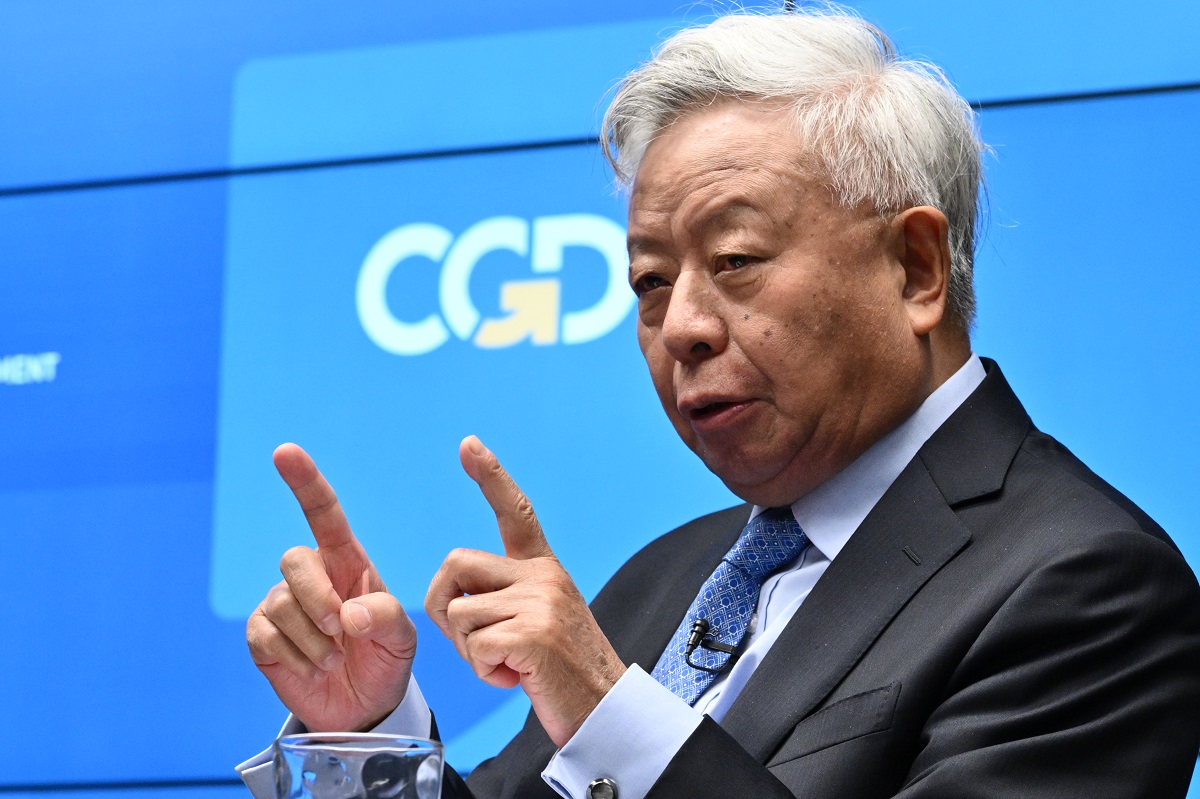My new book The Upside of Down: Why the Rise of the Rest Is Good for the West is published today. Here’s a one-sentence summary: a wealthier, healthier, better educated, more democratic, and more peaceful developing world is fantastic news for Europe and America — so the West should be doing everything possible to ensure the Rest gets even better off in the future.
The book isn’t published by CGD, but it is very much of CGD. It covers a lot of familiar territory for you who know the Center: migration, investment, trade, aid, security, technology, and the global environment. And it borrows a lot from CGD ideas on these subjects, not least:
- More immigration is good for both developing countries and the West
- Reform of overseas investment support can help Africa and the United States alike
- A stronger and more representative International Monetary Fund helps Europe and America as much as it does China or India
- We need to work together to preserve global public goods including the climate and antibiotics
- The United States needs to be a part of international solutions, institutions, and agreements rather than going it alone
But what the Upside of Down really borrows from CGD, beyond particular policy ideas, is a worldview that the international economy is a positive-sum game (to borrow from Martin Wolf): advances in wealth or wellbeing in one part of the world are likely to enhance prospects for progress elsewhere rather than hurt them.
From the alternative zero-sum viewpoint, every new manufacturing job in Chongqing means one less in Chattanooga, every new patent application in Beijing is one less in Boston, and every increase in Indian GDP is a threat to the hegemony of the United States. Zero-sum is an idea born of a particular view of international relations that sees countries as being in conflict for a set amount of resources, or land, or wealth.
But the idea that a country’s welfare or even power rests on its privileged access to resources that are limited and one-user-only (rival in economic jargon) is antiquated. It has been far more than a century since the amount of land a country controls has been a good measure of much of anything. Take South Korea: with a land mass around two-thirds of 1 percent of the planetary total, its economic output is larger than what the whole planet’s was in 1820.
More broadly, the declining importance of domestic physical resources probably helps explain why the number of wars of conquest has dropped pretty much to zero over the past few decades. When everyone was desperate for the same source of nitrogen, it was worth going to war over islands covered in bird poop. Technology change has provided us with less smelly and nonrival ways to meet our nitrogen needs. Nowadays, many people associate having lots of resources with slower development, if anything.
Technology, ideas, and institutions are what determine wealth, health, and well-being — not stuff or brute numbers. And technology, ideas, and institutions are largely nonrival. America being a democracy with and independent central bank and a health system that understands the germ theory of infectious diseases doesn’t stop Brazil having all those same attributes. In fact, we all benefit from both Brazil and America sharing these attributes. Again, ever more of our most pressing problems are global in scope while ever-more of our production, invention and discovery is planet-spanning, too. Think about the spread of global production chains, or increasing collaboration across countries in research and development or the global integration of stock markets. Think of worldwide collaboration in peacekeeping (where the vast majority of blue-helmeted troops on UN operations are from developing countries). Or think of challenges ranging from antibiotic resistance through climate change and biodiversity to sustaining fisheries or stabilizing banks and financial markets.
Seeing the planet today through the decayed eyes of Malthus and Machiavelli is simply wrongheaded. Framing engagement with developing countries as zero-sum in an increasingly non-rival, globally integrated world makes absolutely no sense at all. My colleague Owen Barder suggests the same thing when he talks about CGD’s Commitment to Development Index, which ranks rich countries on their policies toward poorer countries. He suggests it should not be seen as a measure of the compassion or cosmopolitanism of rich countries, so much as an indicator of their commitment to their own long-term self-interest. But either way is correct --because in a positive-sum world, cosmopolitanism and compassion increasingly align with self-interest. That’s a far nicer place to find yourself than one where the two conflict, and it is surely the best reason to hope that the world will keep on becoming a better and better place to live.
I hope The Upside of Down helps in some small way to further shift the frame of thinking about Asia, Africa, and Latin America toward one of cooperation and mutual gain rather than competition and fear. And I’m proud to work at CGD because that’s what people around here do pretty much every day.
There will be launch events for the book at the offices of the New America Foundation in New York on January 16 and at CGD’s Washington offices soon after (details forthcoming). I hope you can join for one or the other.
Disclaimer
CGD blog posts reflect the views of the authors, drawing on prior research and experience in their areas of expertise. CGD is a nonpartisan, independent organization and does not take institutional positions.




